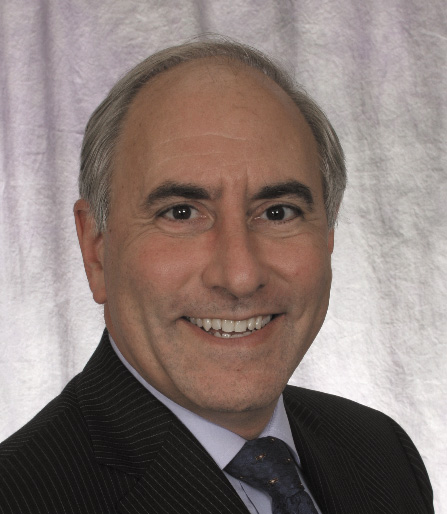In Memoriam: Stephen B. Heppe, DSc
Steve was one of our beloved Exclusive Experts for over a decade. He loved working with and through Round Table Group and sent all his cases to be managed by RTG. All of us at Round Table Group will miss him.
Dr. Heppe had over 40 years of experience in the area of telecommunications, electrical engineering, radio/radar, unmanned aircraft, and GPS/GNSS with General Electric Space Division, Stanford Telecommunications, Telenergy, Insitu/Boeing, and independent consultancies.
Areas of Expertise
- Cellular, satellite, and aeronautical communications
- Communications control systems
- Unmanned aircraft (UAVs)
- Direction-finding and positioning
- Electrical engineering
- GPS and DGPS technology
- Mobile satellite services
- Robotics/automated control systems
- Surveillance systems
Technologies
- Avionics systems
- Radio Communications
- Consumer electronics
- Digital data processing
- Navigation, positioning, and attitude determination
- Telecommunication equipment
- Wireless technology
Educational Background
Dr. Heppe received a BS in electrical engineering and computer science (EE/CS) from Princeton University in 1977, and his MS and D.Sc. degree in Electrical Engineering (Communications emphasis) from George Washington University in 1982 and 1989, respectively.
Patents and Inventions
Dr. Heppe holds two dozen US and international patents related to radio communications, the internet, GPS, and unmanned aircraft.
Publications
He has published several articles on satellite communications, aeronautical communications, and GPS performance.
Employment History
Dr. Heppe had over 40 years of experience in the area of telecommunications, electrical engineering, radio/radar, unmanned aircraft, and GPS/GNSS with General Electric Space Division, Stanford Telecommunications, Telenergy, Insitu/Boeing, and independent consultancies.
He served as an independent consultant and expert witness relating to satellite communications, cellular and radio technologies, mobile data applications, fleet tracking, GPS and GNSS systems, robotics, and automation. Expert witness work included over 50 cases involving patent disputes (Federal Circuit, PTAB and ITC), theft of intellectual property, and breach of contract.
He developed aircraft avionics, including data radios, GPS navigation, satellite communications, video processing, RF transmission and sensors and flight controls, as well as national and international standards for VHF radio communications and the use of GPS and GNSS in aviation. He has performed spectrum engineering and radio communications designs and assessments for commercial mobile satellite systems and various space-based government systems including the Defense Satellite Communications System (DSCS), the Strategic Defense System (SDS), space-based radar (SBR), Milstar, NASA Tracking and Data Relay Satellite System (TDRSS), various naval satellite systems and the network for the U.S. Air Force Consolidated Space Operations Center (CSOC).
Recent research projects included long-endurance stratospheric platforms, internet security, and fine-pointing systems for tight-beam long-range radio communications.
Dr. Heppe teaches several short courses on GPS and GNSS, jamming and spoofing of GPS/GNSS, and the fundamentals of communications theory and information theory.
Expert Posts
Station-Keeping for Stratospheric Airships
A balloon or airship, floating in the stratosphere and providing communications or surveillance services to users on the ground, would be a boon to many users.
Saving Truth and Good Will on the Internet
Dr. Heppe discusses how the problem of fake news and misinformation on Internet could be addressed through a solution of technologies, operating systems and creating certificates of status.
Stories from Industry: US Patent 6,961,018 and the Moving GPS-RTK Base Station
Dr. Heppe discusses how ScanEagle, a small, unmanned aircraft, was developed to provide precise GPS navigation and positioning.
Authentication Features Needed for GPS
Dr. Heppe discusses his 40 year career span in GPS and how this technology developed, its vulnerabilities and necessary evolution.

More exclusive experts
Dr. Joel Gellman, Exclusive Expert Witness
Dr. Gellman has over twenty years of experience in cardiovascular medicine. He is trained in Internal Medicine at Harvard Medical School and the Massachusetts General Hospital, in Cardiovascular Research at Yale University and in Clinical Cardiology at Johns Hopkins.
William Messner, Exclusive Expert Witness
Dr. Messner has 20 years of experience in legal consulting. He has deep knowledge of autonomous vehicles, robotics, data storage systems, microfluidics, assistive technologies and control systems.
Andrew Colucci, MD, Exclusive Expert Witness
Dr. Andrew Colucci is a dual-certified physician with a sub-specialty of diagnostic neuroradiology. His expertise includes the modalities of radiography, fluoroscopy, nuclear medicine, PET/CT, CT, MRI, and ultrasound as well as specialized imaging of the head, neck, brain and spine, including fMRI, ASL, CT perfusion, MR perfusion, and MR spectroscopy.
More Oregon Expert Witnesses
Or Click On Your State BelowCALL US NEAR YOU











